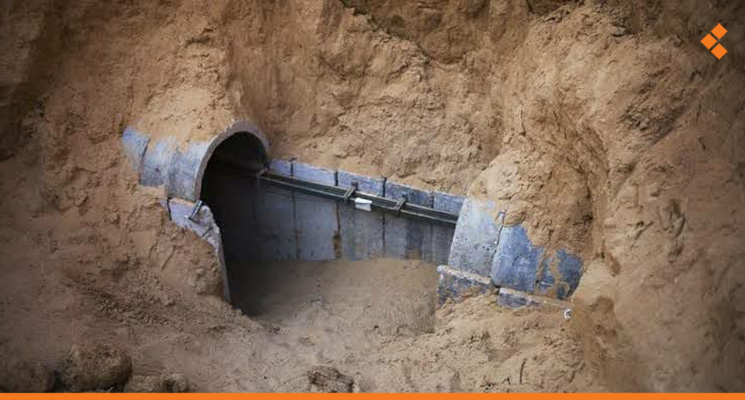U.S. forces have detonated a tunnel that had been dug by Kurdish units near the Turkish border, north of the city of Hasakeh, in response to a request from the Turkish side. According to the Kurdish news agency BasNews, the tunnel was located between the villages of Siran and Tal Karam in Darbasiya, north of Hasakeh. The excavation work had been halted three years ago, but two months ago the YPG resumed the digging, prompting the U.S. forces to completely destroy the tunnel on Sunday.
The Kurdish agency’s sources revealed that the network of tunnels in the countryside of Ain al-Arab was primarily constructed by a significant cadre of the Kurdistan Workers’ Party (PKK), who possessed a map of the tunnels. It was previously reported by the Kurdish news agency that the Kurdistan Party had allocated hundreds of millions of dollars to dig tunnels and trenches in cities and towns controlled by the Kurdish units, as a precautionary measure against potential Turkish military operations.
UN Informs Salvation Government of Aid Cut
The U.S. intervention coincides with a noticeable reduction in the frequency of Turkish bombardments on the positions of the “Kurdish units” in northeastern Syria, compared to previous months.
Tunnel victims
On May 3rd, three people from one family died and a fourth was injured when one of the tunnels dug by the Kurdish units collapsed in the Hilaliya neighbourhood of Qamishli.
On December 11th, a collapse in the soil of a tunnel in the village of al-Ziyarat in the northeastern Hasakeh countryside killed two workers working on the excavation.
Why are these tunnels dug up?
According to a report from al-Monitor, Kurdish forces in eastern and northeastern Syria have been constructing trenches and tunnels in the areas under their control to establish connections between their military positions and factions in Ankara. The report also highlights that the map of these tunnels includes significant locations in the northern countryside of Hasakeh, particularly the northern neighbourhoods of Qamishli, as well as Amuda, al-Derbasiya, al-Malikiyah, and al-Rumailan. Additionally, it mentions that the United States is responsible for providing the building materials inside these tunnels. These supplies are transported through supply convoys from Iraq and contain military and logistical equipment.
This article was translated and edited by The Syrian Observer. The Syrian Observer has not verified the content of this story. Responsibility for the information and views set out in this article lies entirely with the author.


